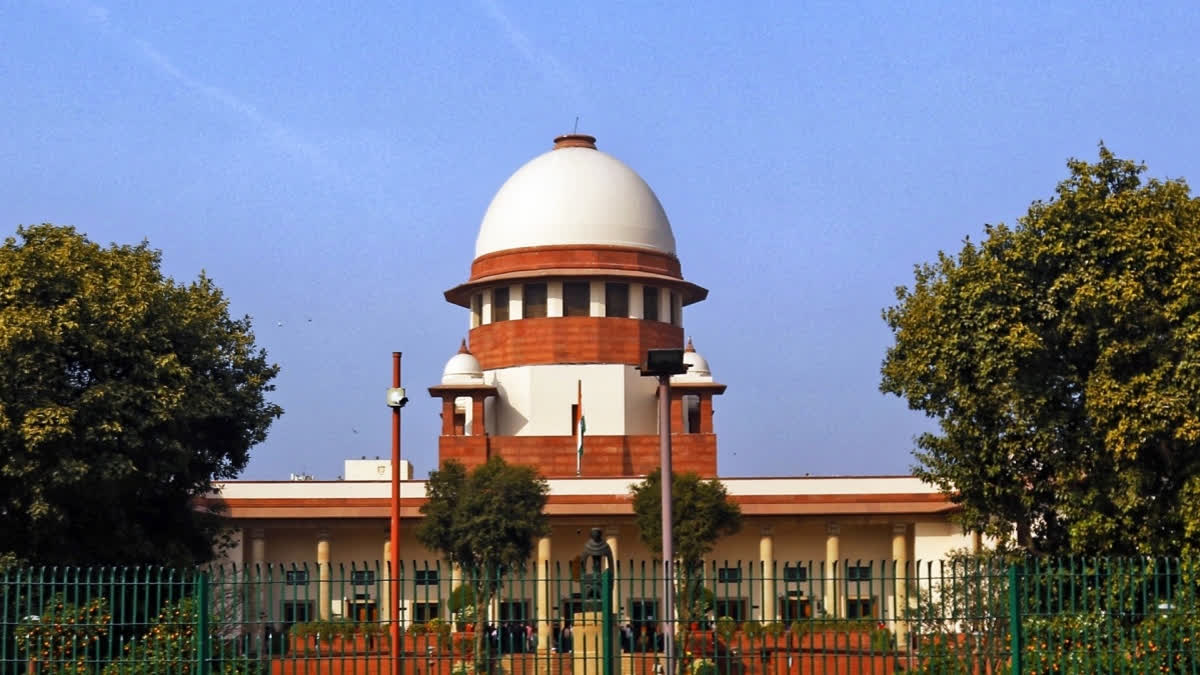New Delhi: The Supreme Court on Monday while overturning the 1998 P V Narasimha Rao case judgment, on the issue of a lawmaker taking a bribe for speech or voting inside the House, said the proceedings provide correct occasion to settle the law once and for all, and “an occasion has arisen in this case to lay down the law and resolve the dissonance”.
The seven-judge constitution bench said that the judgment of the majority in PV Narasimha Rao deals with an important question of constitutional interpretation which impacts probity in public life, and the decision has been met with notes of discord by various benches of this court ever since it was delivered in 1998.
“An occasion has arisen in this case to lay down the law and resolve the dissonance. This is not an instance of this court lightly transgressing from precedent. In fact, this case is an example of the court giving due deference to the rule of precedent and refraining from reconsidering the decision in PV Narasimha Rao (supra) until it arose squarely for consideration”, it said.
The apex court said the decision in Rao’s case has wide ramifications on public interest, probity in public life and the functioning of parliamentary democracy. It said the majority judgment contains several apparent errors inter alia in its interpretation of the text of Article 105; its conceptualization of the scope and purpose of parliamentary privilege and its approach to international jurisprudence all of which have resulted in a paradoxical outcome. The bench said the present case is one where there is an imminent threat of this court allowing an error to be perpetuated if the decision in PV Narasimha Rao (supra) is not reconsidered.
The apex court said in PV Narasimha Rao the majority judgment interprets the phrase “in respect of” as having a broad meaning and referring to anything that bears a nexus or connection with the vote given or speech made. The bench noted that it therefore concluded that a bribe given to purchase the vote of a member of Parliament was immune from prosecution under Clause (2) of Article 105. By this logic, the majority judgment concluded that a bribe-accepting member who did not comply with the quid pro quo was not immune from prosecution as his actions ceased to have a nexus with his vote, noted the bench.
The apex court noted that majority in PV Narasimha Rao has taken the object of Article 105 to be that members of Parliament must have the widest protection under the law to be able to perform their function in the House. “This understanding of the provision is overbroad and presumptive of enhanced privileges translating to better functioning of members of the House. Privileges are not an end in themselves in a Parliamentary form of government as the majority has understood them to be”, said the apex court.
The apex court noted that the minority judgment points out the paradoxical result which would emerge if members were given immunity from prosecution for their speech or vote but would not be protected if the bribe was received for not speaking or not voting.
“The offence of bribery is complete on the acceptance of the money or on the agreement to accept money being concluded. The offence is not contingent on the performance of the promise for which money is given or is agreed to be given. The minority opinion in PV Narasimha Rao based its view on another perspective which was not dealt with by the majority”, said the apex court.
The apex court said the minority opinion stated that the act of bribery was the receipt of illegal gratification prior to the making of the speech or vote inside the House. “Interpreting the phrase ‘in respect of’ to mean ‘arising out of’, the minority concluded that the offence of bribery is not contingent on the performance of the illegal promise”, said the bench.
“The understanding of the law in the judgment of the majority in PV Narasimha Rao creates an artificial distinction between those who receive the illegal gratification and perform their end of the bargain and those who receive the same illegal gratification but do not carry out the agreed task”, said the bench.
The apex court said the offence of bribery is agnostic to the performance of the agreed action and crystallizes based on the exchange of illegal gratification and that the minority judgment also highlighted the prima facie absurdity in the paradox created by the majority judgment.
The apex court said to read Articles 105(2) and 194(2) in the manner proposed in the majority judgment results in a paradoxical outcome. “Such an interpretation results in a situation where a legislator is rewarded with immunity when they accept a bribe and follow through by voting in the agreed direction. On the other hand, a legislator who agrees to accept a bribe, but may eventually decide to vote independently will be prosecuted. Such an interpretation belies not only the text of Articles 105 and 194 but also the purpose of conferring parliamentary privilege on members of the legislature”, said the apex court.
In 1998, a five-judge bench of then CJI S P Bharucha, and Justices A S Anand, S Rajendra Babu, S C Agrawal and G N Ray dealt with the matter. Three opinions were rendered in the matter- one by Justices Agrawal and Anand, second by Justices Bharucha and Babu and another one by Justice Ray. The opinion authored by Justice Bharucha, on the interpretation of Article 105(2) represented the view of the majority of three judges of the apex court.



